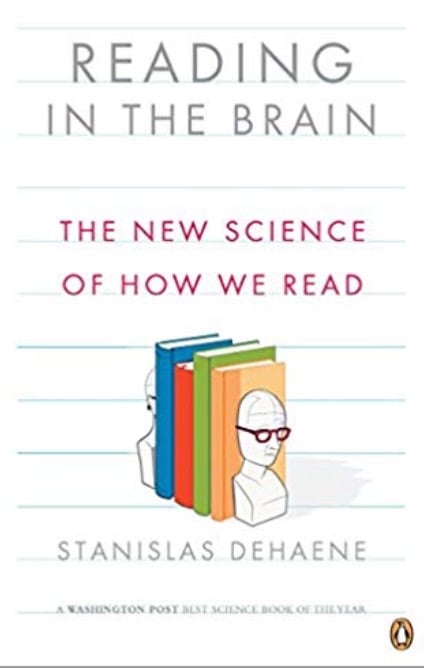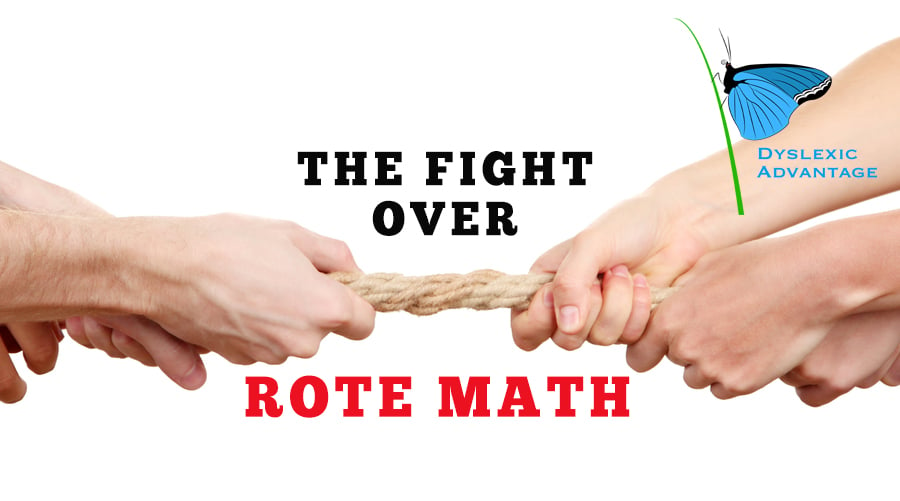As dyslexic college students are entering 2- and 4- year colleges in increasing numbers, questions arise as to the impact of dyslexia-related challenges on essay writing. The National Longitudinal Transition Study-2 had found that although a majority of LD students in high school requested accommodations (91%), only 17% requested accommodations in college. A problem with this situation is that the net result is that written work (especially timed written work) will typically substantially underestimate a student’s fund of knowledge and understanding. A recent study at Oxford Brookes University showed that college students with dyslexia matched their non-dyslexic peers in terms of word diversity, ideas, organization, sentence structure, and even grammar. The tasks in which they scored lower than their peers were so-called “low-level transcription skills” […]
Moving to learn: The UPSIDE to Fidgeting [Premium]
Researchers from Florida presented visually dramatic evidence of the difference in ADHD student hyperactivity dependng on the task at hand. 52 boys ages 8 to 12 were studied. 32 had ADHD and 30 served as controls. 44% of ADHD students had been prescribed stimulant medication, and these students had medicines held for at least 24 hours prior to the study. What you can see in the video is the dramatic difference in hyperactivity depending on whether the student was watching a mathematics instructional video or the pod racer scene from Star Wars. Perhaps not completely surprisingly, both ADHD and neurotypical boys showed better attention for the Star Wars video than the math instruction. Remember that ADHD is distinct from dyslexia and boys in general are […]
[PREMIUM] Don’t Require COPYING From the Board
DON’T REQUIRE COPYING FROM THE BOARD Dr. Kirkby: “Copying text…is psychologically complex. It involves a series of sequential visual and cognitive processes, which must be co-ordinated: these include visual encoding, mental representation, an written production.” Long after students have begun to crack the code of reading, note-taking and copying from the board remain very difficult if not impossible for some students. Note-taking from lecture adds the additional challenging of listening to words, translating them into a visual representation, then retrieving these images and motor sequences to get them down on a page. Moderate to severe dysgraphia is not uncommon among dyslexic students. For these students, not only will copying from the board be impossible, but also significant modifications (decreased written work) and accommodations (extended time, […]
Strategic Thinking and Dyslexia Education [Premium]
There are many accomplished dyslexics who have told us that one of their greatest strengths in their current career is strategic thinking, but is there any evidence that strategy is a strength that is present in the school years, and if so, can it be better used to help students tackle the many academic hurdles that they face? Unfortunately, there has been relatively little attention studying the potential of strategy in the curriculum of dyslexic students, but there is some and in those studies, the findings are interesting. For instance, in a study of LD students attending 4 Southern California universities, researchers sought to understand how students with significant difficulties in phonological awareness and word attack were able to do just as well as non-LD […]
SCIENCE: THE BALANCING ACT OF LITERACY
Dr. Stanislaus Dehaene is a French researcher who has authored Reading and the Brain. He and his research team conducted some interesting investigations into Portuguese and Brazilian adults who they classified into 3 groups: unschooled adults (referred to as...
Latest Research: Repetition As a Poor Way to Teach Dyslexics [Premium]
In groundbreaking research, researchers at MIT or the Massachusetts Institute of Technology reported that dyslexic children and adults have “a diminished ability to acclimate to a repeated input in their paper titled “Dysfunction of Rapid Neural Adaption in Dyslexia.” Like many research papers, dyslexia is seen through a negative lens (‘dysfunction’) and the take-home points through university press releases, similarly so, however the findings are interesting ones and fit with an evolving picture of dyslexia as a learning difference (rather than disease or disability) that extends beyond reading and has ramifications for many aspects of education. “It’s a difference in the brain that’s not about reading per se, but it’s a difference in perceptual learning that’s pretty broad,” says John Gabrieli, who is the study’s […]
The Fight over Rote Math
If you think you've been hearing conflicting information about rote math in the news or from schools, you're absolutely right. The fight is spilling over to educational policymakers and makers of standardized tests such as the College Board. For dyslexic and...
Math and Dyslexia: Dyslexic Advantage Talks to Stanford & Georgetown Experts Tanya Evans and Michael Ullman
Last week, I had a chance to chat with Stanford's Tanya Evans and Georgetown's Michael Ullman about their recent research paper about procedural learning and math. In their paper, their definition of procedural learning relates to the type of learning that...
Choosing the Right Reading Level Books for Students with Dyslexia [Premium]
It’s often told to parents that a “Five Finger Rule” can help you choose whether a book is at the right reading level for a student. The rule states that if a student misses five or more words, it may be too hard, no words and it might be too easy, and three words and it’s ‘just right’. The problem for dyslexic students is that the “Five Finger Rule” may prevent them accessing print information at their intellectual level and if reading aloud is the guide for the rule, then it’s possible they may never be granted access to higher level books even if they are university professors! In fact, pioneering work by Rosalie Fink (see research paper below for Premium members), showed that accomplished […]
Critical Review of the Use of Strattera on Healthy Children with Dyslexia
In a controversial paper, Dr. Sally Shaywitz and colleagues at the Yale Center for Dyslexia and Creativity and the Eli Lilly Pharmaceutical Company have authored a paper that examines the effect of the norephinephrine uptake inhibitor Atomoxetine (Strattera) on...
Why It’s Hard to Proofread and Read Fluently [Premium]
It can be maddening. You look and look you just don’t see it. Later you pass your work along, you see all the thing you hadn’t seen the first time round. What’s going on ? You’ve experienced a ‘trick’ of perception. In our clinic, when trying to explain the phenomenon to children, we often use the analogy of optical illusions…when you see something that’s not there or you miss something – that later you can’t believe you could see at the start. These tricks of perception are what adds to the time needed for many dyslexic students on classroom and standardized exams. It accounts for why some teachers may be flabbergasted by a student’s need for extended time, when they seem so quick with problem solving […]
STRONGER Interconnected Retelling of Stories by Dyslexic Children
In a recent study, researchers found that children with dyslexia (2nd-5th graders) had a better ability to discuss links between a text read compared to fellow students who were at the same decoding level. This might be early evidence of the 'big picture' strengths...

![Dyslexia at College: THE CHALLENGE OF WRITING [Premium]](https://www.dyslexicadvantage.org/wp-content/uploads/2018/01/Screen-Shot-2019-08-30-at-8.43.51-PM.jpg)
![Moving to learn: The UPSIDE to Fidgeting [Premium]](https://www.dyslexicadvantage.org/wp-content/uploads/2018/01/shutterstock_331750409.jpg)
![[PREMIUM] Don’t Require COPYING From the Board](https://www.dyslexicadvantage.org/wp-content/uploads/2017/12/Screen-Shot-2019-08-31-at-2.15.03-PM.jpg)
![Strategic Thinking and Dyslexia Education [Premium]](https://www.dyslexicadvantage.org/wp-content/uploads/2017/10/Screen-Shot-2019-08-30-at-9.11.07-PM.jpg)

![Latest Research: Repetition As a Poor Way to Teach Dyslexics [Premium]](https://www.dyslexicadvantage.org/wp-content/uploads/2016/12/shutterstock_133874900.jpg)


![Choosing the Right Reading Level Books for Students with Dyslexia [Premium]](https://www.dyslexicadvantage.org/wp-content/uploads/2016/10/reading-bulb-our-shutterstock-scaled.jpg)
![Why It’s Hard to Proofread and Read Fluently [Premium]](https://www.dyslexicadvantage.org/wp-content/uploads/2016/09/Screen-Shot-2017-10-07-at-1.49.34-PM.png)














